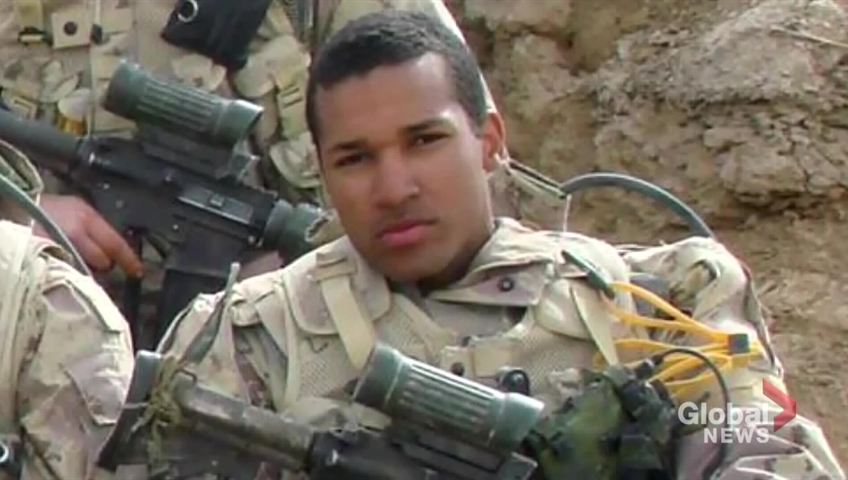The Veterans Affairs case manager assigned to help Lionel Desmond reintegrate into civilian life explained to a fatality inquiry Tuesday why it took six months before she could offer any assistance to the troubled former infantryman.

The provincial inquiry in Nova Scotia is investigating why the Afghanistan war veteran killed three family members and himself in January 2017 – about 18 months after he was medically released from the army because he was suffering from severe post-traumatic stress disorder.
Marie-Paule Doucette told the inquiry Desmond was admitted to a Veterans Affairs rehabilitation program in May 2015, but she didn’t start working with him until November of that year.
Doucette, a trained social worker with a master’s degree, said she was among a group of people hired in 2015 to deal with a backlog of cases that had built up because previous government cutbacks had led to a staffing shortage.
“There definitely seemed to be major demands coming in,” she said, adding that she had the kind of workload “that never goes away.”
Doucette said the goal of Veterans Affairs was to have each case manager handle about 25 veterans, but her caseload grew to between 35 and 40 by January 2017.
The inquiry has heard that after Desmond was officially released from the military in June or July of 2015, he was referred to the Operational Stress Injury Clinic in Fredericton, which is not far from Canadian Forces Base Gagetown, where he was posted.
Doucette confirmed that Desmond was getting help with his mental health at the clinic, but treatment was often interrupted by his frequent visits to his hometown in eastern Nova Scotia.
At the time, Desmond, his wife and young daughter were in the process of moving back to Nova Scotia, but the former soldier was often left alone in his home in Oromocto, N.B., as the transition dragged on.
Doucette said she was made aware the clinic had concerns with Desmond’s mental stability in November 2015. She said she first met with him the following month, when she conducted a detailed assessment.

Referring to the assessment file, Doucette said it was clear Desmond was struggling with his mental health, though there were no signs he was contemplating suicide or self-harm. At the time, Desmond was friendly and trusting when the two met in his tidy home in Oromocto, she said.
“He seemed to be happy to be engaging,” she said. “I didn’t get a sense that he was mistrusting me.”
Desmond, however, had said the police had been recently dispatched to his home because his wife, Shanna, was worried he was about to kill himself, Doucette said. But Desmond had insisted his wife had misunderstood what he was saying, she added.
The inquiry has heard that police in Fredericton seized a firearm from his property during that call. As well, Desmond had admitted to having multiple difficulties with PTSD and marital problems.
“He felt he needed more support from professionals,” Doucette said.
The plan, arranged by the clinic in Fredericton, was to have Desmond attend an intensive residential treatment program at Ste. Anne’s Hospital in Montreal, where the goal was to stabilize his mental health before treating his trauma with therapy.
The inquiry has heard that Desmond attended the program between June and August of 2016, but the staff there determined he had made little progress. More importantly, they said Desmond required more treatment and further assessment.
The inquiry has heard that Desmond received no therapeutic help for the next four months. That gap has become a focus of the inquiry, which started hearings in January 2020 but has been delayed because of the COVID-19 pandemic.
On Jan. 3, 2017, Desmond fatally shot his wife, mother and 10-year-old daughter in their home in Upper Big Tracadie, N.S.
This report by The Canadian Press was first published June 22, 2021.



Comments